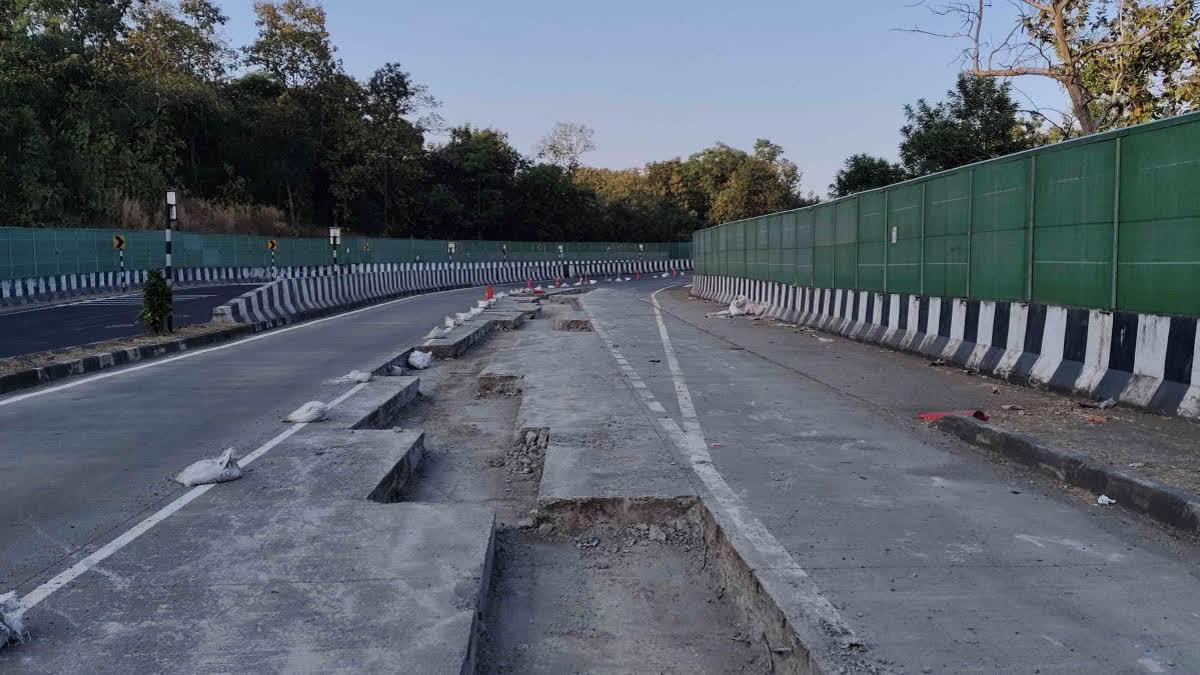Chhindwara: The nation's first sound and light-proof highway, designed to protect wildlife in the Pench Tiger Reserve, has fallen into disrepair within its four-year guarantee period. This section of National Highway-44, connecting Jabalpur in Madhya Pradesh to Nagpur in Maharashtra, was built at an estimated cost of Rs 960 crore and inaugurated on September 16, 2021.
A Highway With Purpose
Stretching 29 Km between Mohgaon and the Khawasa border, this part of NH-44 passes through the buffer zone of the Pench National Park. The highway was constructed to minimise the impact of traffic on wildlife by incorporating sound and light-proof measures. Previously, numerous animals fell victim to road accidents in this region, prompting the development of this eco-sensitive project.
Key features include 14 underpasses, spanning a total length of 3,145 metres, allowing wildlife to cross safely beneath the road. To further ensure minimal disruption, a four-metre-high steel wall equipped with green sound barriers and headlight reducers was installed on both sides. These features prevent sound and vehicle headlights from disturbing wildlife as vehicles speed along this stretch.
Damage and Maintenance Work Begin
Despite these innovations, large portions of the highway stretched to deteriorate. Potholes and uneven patches appeared and extensive patchwork is now underway. Construction company officials attribute the damage to soil depression caused by the highway's weight.
NHAI Project Director Sanjeev Sharma defended the construction quality, stating, "No compromises have been made with the quality of the highway. The road has been damaged due to excess weight causing ground depression. Since the highway is still within the guarantee period, maintenance is being carried out by the construction company."
Concerns Over Longevity and Wildlife Safety
The condition of the highway has raised concerns about its durability and effectiveness. While the maintenance work is ongoing, sections of the road have been reduced to single-lane traffic, causing inconvenience to commuters.
The project, initially praised as a model for eco-friendly infrastructure, now faces scrutiny over its quality. Environmentalists worry that continued disrepair could negate its purpose of protecting wildlife.
Read More



